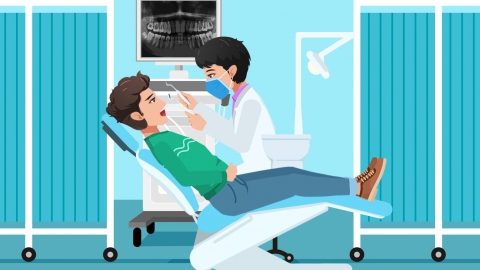Can I eat anything after tooth extraction?
Generally, whether you can eat after a tooth extraction depends on the specific condition of wound healing. The extraction site requires time to heal, and improper diet may irritate the wound, cause bleeding, or lead to infection. If discomfort occurs, it is recommended to seek medical attention promptly. Detailed guidance is as follows:

During the first two hours after tooth extraction, the wound is in a critical period of blood clotting. Eating during this time is not recommended, as premature food intake may disrupt the blood clot, leading to bleeding or dry socket. It's important to keep the mouth at rest to allow initial healing of the wound.
Two hours after the extraction, if there is no obvious bleeding or swelling at the wound site, you may begin consuming small amounts of food. Opt for lukewarm, soft, and easily digestible foods such as steamed egg custard, millet porridge, or mashed pumpkin. These foods require minimal chewing, do not irritate the wound, provide necessary nutrition, and are gentle on the healing site.
When eating, chew on the side of the mouth opposite to the extraction site to prevent food debris from getting trapped in the wound. Avoid hot, hard, spicy, or irritating foods that could aggravate the wound. After meals, gently rinse your mouth with a mild mouthwash or warm salt water to maintain oral hygiene. If bleeding or increased pain occurs after eating, stop eating immediately and consult a healthcare professional.







